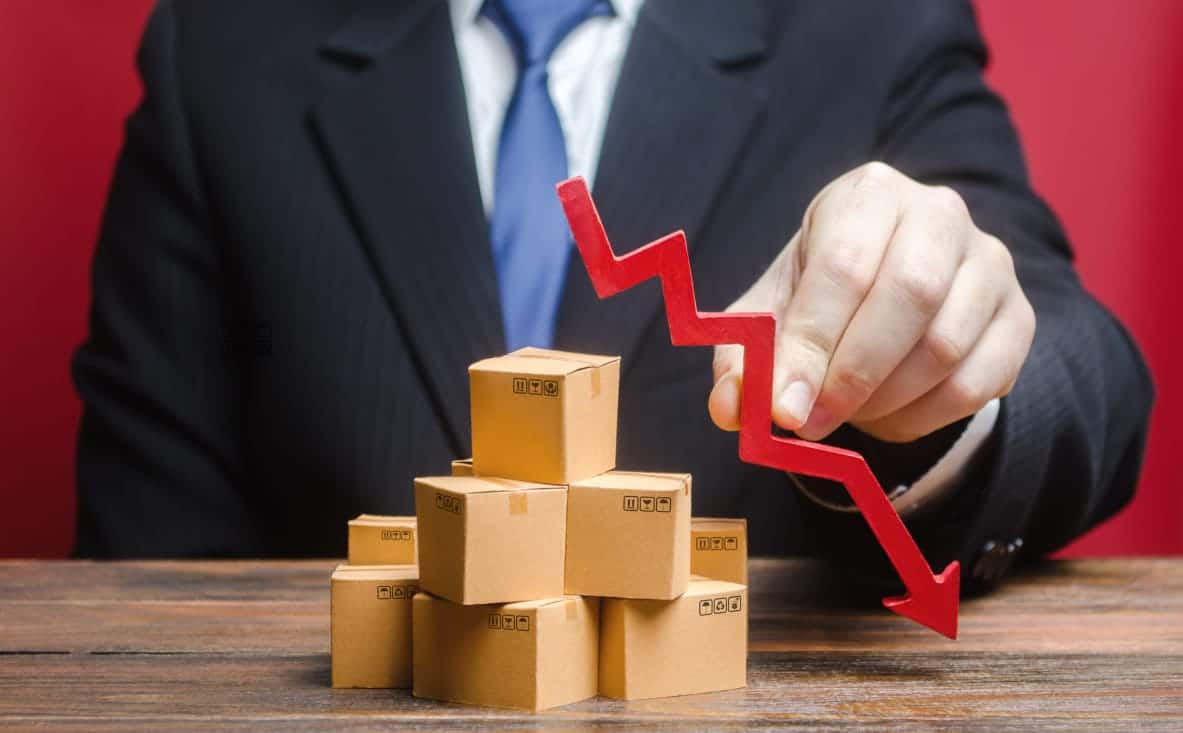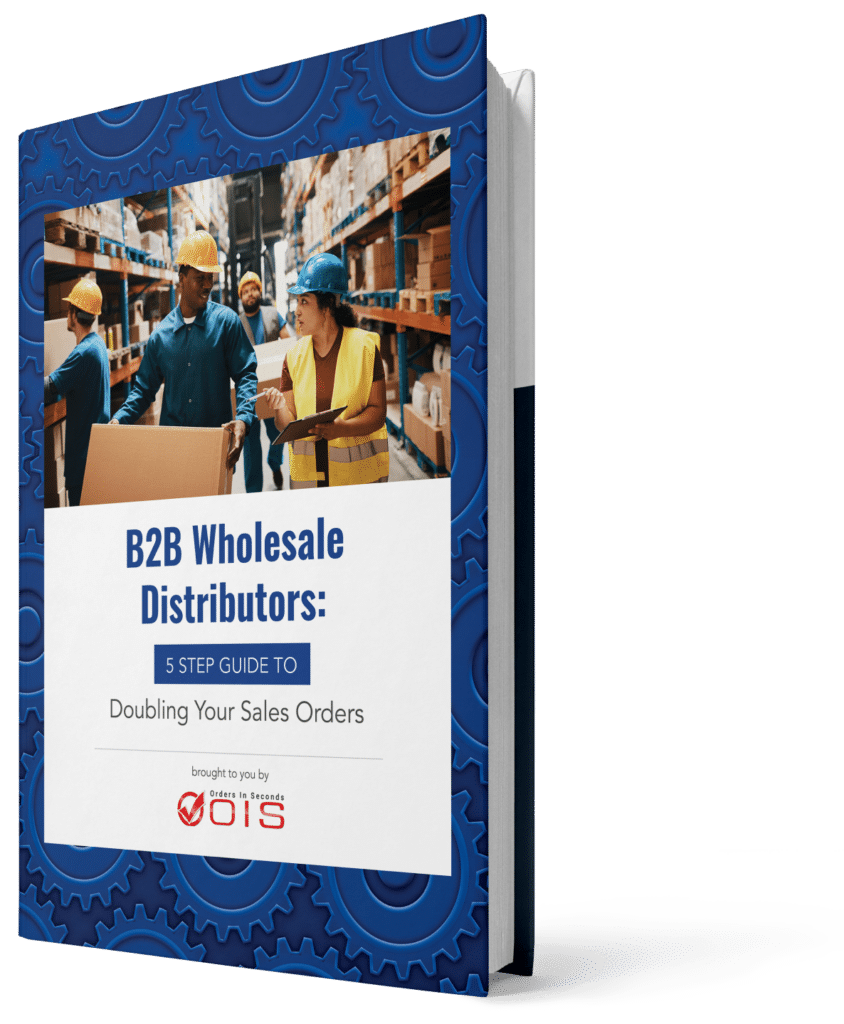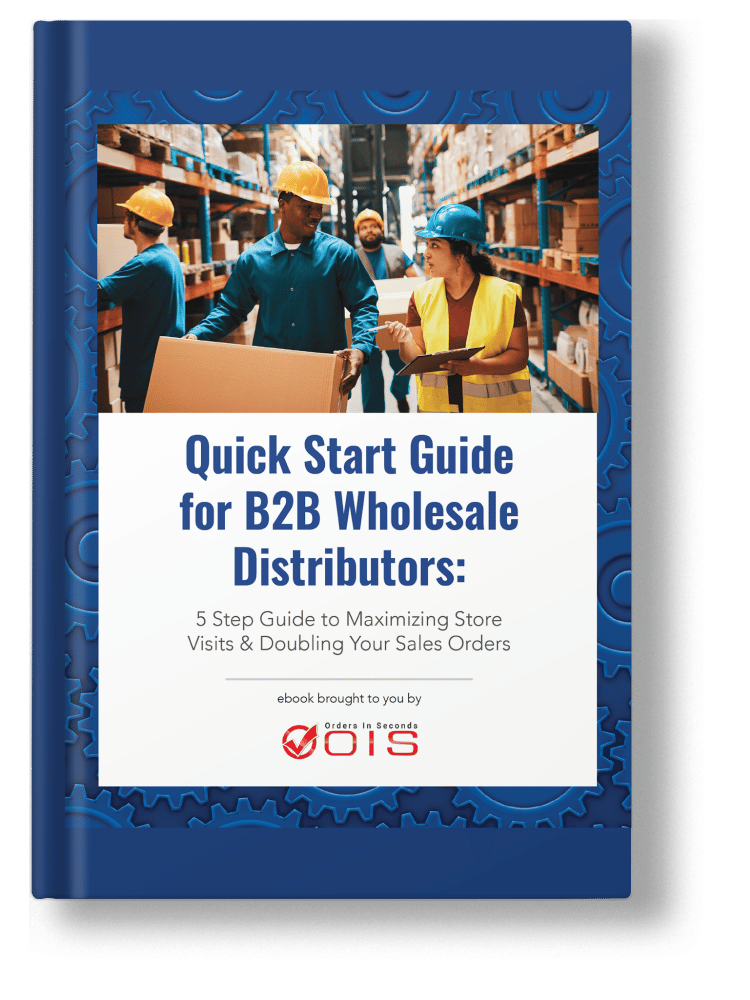Most business owners don’t like the idea of going into a recession. Not knowing what to expect is what creates such anxieties for worst case scenarios. However, if you are prepared, economic downturns don’t necessarily have to be terrible experiences. To start, it’s important to understand what an economic recession is and why they occur, especially now, that economic experts predict one will occur in 2023 (source).
How will a recession impact your inventory business?
Recessions typically endure no more than a few financial quarters, but their repercussions can linger much longer. Here are just a few instances of how a recession may affect wholesale distributors and their inventory business.
Decrease Demand
The demand for products and services decreases either because of higher prices (inflation), or because of a decrease in consumption capacity (less money, higher interest rates on credit, etc.), both of which can occur during a recession. This decrease in demand is the main reason why companies have financial difficulties during a recession, it creates a domino effect that ultimately affects the entire supply chain, including wholesalers ability to move stock.
Reduce Profits
A decrease in demand results in lower sales for any company across all industries. As economic growth takes a hit, consumers becomes aware of their expenses and spend less. This translates into less orders from your business-to-business (B2B) retail clients so wholesaler distributors will struggle to produce their usual sales. This will force wholesaler distributors to cut costs in order to compensate for the lower profits. However, the effect might not be felt immediately. Only after a year of consumers and businesses cutting back on their costs, wholesalers will start to feel and see their sales decrease (source).
Staff Layoffs
One of the biggest indicators for the start of a recession is the unemployment rate. Throughout all recessions, unemployment has shown a significant increase as businesses try to find ways to reduce costs, even more considering they would need less personnel to meet the demand for their products and services. As an example, in the 2007 recession there were 8.8 million of unemployed people (10.6%) (source). During the COVID crisis, this number had escalated to a high 14.4%, affecting around 20 million people in the United States. As of September 2022, unemployment has lowered to a 3.5% rate (source).
Price Wars
During recessions, customers become increasingly price-conscious and price-sensitive. Executives often assume that cutting prices and profit margins is the only way to keep their customers and market share. However, this can trigger price wars among competitors, driving profitability even lower. This result in a greater demand from retailers to limit price increases, which is bad news for wholesale distributors that will need to figure out a way to keep costs down while ensuring that both ends generate revenue.
How can your wholesale distribution business thrive in a recession?
Let’s suppose predictions are correct and a recession is imminent. What does this entail for companies who supply other companies with goods or services? How should wholesale distributors get ready for and react to a situation in which the economy weakens? Let’s find out.
Prepare Today for Tomorrow
Companies that can detect signs of a recession before it takes place and elaborate a plan to better ride the storm can successfully overcome this difficult period. This doesn’t need to be complicate, you can simply, write a strategy to prepare for a recession by establishing goals going as far as 6, 12, 18, and 14 months. Remember to always consider the worst and the best-case scenarios possible. You should also ask yourself, what if the recession is longer than estimated and I don’t have any money? Should I take out a loan if that’s the case? Similarly, remember to create an emergency fund, pay any debts you might have and be cautious with your budgeting. This way you are better prepared and recession-proof your business.
Increase Operational Efficiency Now
When facing a recession, it is crucial to have greater operational efficiency and execution. By implementing practices that promote continuous improvement of operational efficiency a wholesale distribution business can set itself apart from the competition by enduring the impact of an economic downturn. Being resourceful with the company assets and investing in technology and resources that increase efficiency in different areas of the business, including order-taking and fulfillment and inventory managment is great advantage to ride out the unpredictability of a recession.
Control Lead Time
Automating your sales process is the best way to maintain and monitor a good lead time. Keeping a close eye on your lead time, will keep your customers happy, since they know exactly when they’ll being receiving their products, helping to reduce downtime and wastage. During a recession, when there maybe a shortage of clients and feelings of uncertainty, automation allows you to be more responsive to decrease demand or changes to the market. Being able to manage lead times is also crucial for customer confidence and management of payments for your products or services.
Keep Lines of Communication Open
Remember, as an industry, the entire consumer packaged goods (CPG companies) supply chain will be experiencing the recession together. It’s vital to acknowledge now as in previous recessions the importance of having an open and honest channel of communication with your valuable B2B clients. Regular communication and transparency about the challenges your company is facing and the expectations of your customers are crucial so that there’s understanding across your efforts that can benefit all parties.
Final Thoughts
Many companies suffer the negative impacts of recessions, a phenomenon that is cyclical and one for which every business needs to be ready for and wholesale distributors are no exception.
I hope this blog post helped you understand the potential effects of a recession and how to strategize to minimize the consequences to your business operations.
Planning ahead is a must for wholesale distributors to not only stay afloat, but thrive during an economic downturn. Recovering quicker from a recession, and in a better position once the economy picks up.





